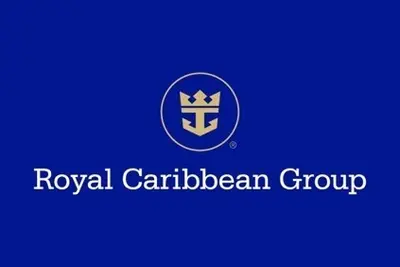The tide has finally changed for Royal Caribbean Group's bottom line.

Royal Caribbean Group posted better than expected earnings for the third quarter of 2022 with a total revenue of $3.0 billion and net income of $33 million and Adjusted EBITDA (Earnings before interest, taxes, depreciation, and amortization) was $742.3 million.
Revenue hitting $3 billion is the highest since the third quarter of 2019.
The change comes as demand for cruise vacations surges following the global health crisis. The cruise line's occupancy rate was 96%, more than double the 36% level in the year-ago quarter.

Royal Caribbean Group CEO Jason Liberty called the third quarter "better than expected", "Last quarter's better than expected performance was a result of the continued robust demand environment and strong execution by our teams."
"The combination of our leading global brands, the best and most innovative fleet in the industry, our nimble global sourcing platform and the very best people have delivered a successful return of our business to full operations and positions us well to deliver record yields and adjusted EBITDA in 2023."
As expected, total revenues per passenger cruise day were flat as reported and up 1%.
Third quarter by the numbers

Load factors (meaning how full were the cruise ships) in the third quarter were 96% overall, with Caribbean sailings reaching almost 105%.
Royal Caribbean Group expects fourth quarter load factors to be similar to third quarter overall, and to reach triple digits by year-end.
Booking volumes in the third quarter accelerated versus the second quarter of 2022 and remained significantly higher than booking volumes received in the third quarter of 2019 for all future sailings.
Bookings update

Booking volumes in the third quarter were significantly higher than the corresponding period in 2019, because Covid-19 testing and vaccination protocols were eased.
The company said its customers continue to make their cruise reservations closer to sailing than in the past, resulting in about 50% more bookings in the third quarter for current year sailings when compared to the third quarter of 2019.
While 2022 bookings remain strong and on pace to achieve occupancy targets, the most notable change has been a substantial acceleration in demand for 2023 sailings.
Booking volumes for 2023 doubled during the third quarter when compared to the second quarter and were considerably higher than bookings for 2020 sailings during the comparable period in 2019, the highest in company history.
As of September 30, 2022, the Group's customer deposit balance was $3.8 billion, reflecting typical seasonality as peak summer sailing deposits have been recognized in revenue. In the third quarter, approximately 95% of total bookings were new versus FCC redemptions.
A look at 2023

For 2023, all quarters are currently booked well within historical ranges at record pricing.
While still early in the booking cycle, the view for 2023 is encouraging and the company expects a return to historical load factors in early summer, record yields and adjusted EBITDA for 2023.
The company expects to benefit from lower transitory expenses and accelerating benefit from actions taken to improve margin while partially mitigating continued inflationary pressures expected to persist through the first half of 2023.
Trifecta program

Royal Caribbean Group announced a new three-year plan it hopes will get it back to maximum profitability.
The Trifecta Program has three main goals to be achieved by the end of 2025:
- Triple Digit Adjusted EBITDA per APCD, to exceed prior record Adjusted EBITDA per APCD of $87 in 2019.
- Double Digit Adjusted Earnings per Share to exceed the prior record Adjusted Earnings per Share of $9.54 in 2019.
- Return on Invested Capital ("ROIC") in the teens to exceed the prior record ROIC of 10.5% in 2019 through optimizing capital allocation and enhancing operating income.
The company plans to achieve these goals through a formula of moderate capacity growth, moderate yield growth, and strong cost controls, all while ensuring disciplined capital allocation, investing in the future and improving the balance sheet.






